There are many ways to clad or finish your home in Rowlands Gill,but house rendering is one of the most common and widespread solutions. There is a wide range of rendering solutions to choose from, each with merits and virtues.
At WeDoRender, we are convinced there is a render for every home and client. Whether you are looking for rendering work to invigorate an old Rowlands Gill property or ensure a contemporary home is stylish and well protected, we are here to help.
If you have heard of house rendering, but are unsure of what it is or why it matters to you and your house, don’t worry. Many people are in this position, but as we know rendering inside out, we are more than happy to advise you.
You should think of house rendering as a form of cladding to the outside of your home. Rendering is applied in a way that plaster is applied to the inside walls of your home.
There are three massive reasons to render your home:
While the functionality of rendering, protecting your home for many years to come, is crucial, there is no denying many property owners focus on the aesthetic charm of rendering. Improving your kerb appeal is vital; whether you want to sell your home soon or not, an attractive house is always worth pursuing.
The energy efficiency benefits of rendering are also worth considering. With the cost of fuel and energy bills rising, many people are looking for ways to insulate their homes better and lower their heating bills without compromising on the standard of their home life.
Homeowners should note that house rendering isn’t the cheapest solution, especially when you have a large home to cover. However, the value for money on your investment is considerable, and anyone taking a longer-term approach to caring for their home will find this solution viable.
In many ways, house rendering saves money. If you end up repairing your home, repairing cracks or dealing with dampness, it will cost you a lot more money. So, by being proactive in rendering your home, this service can save money.
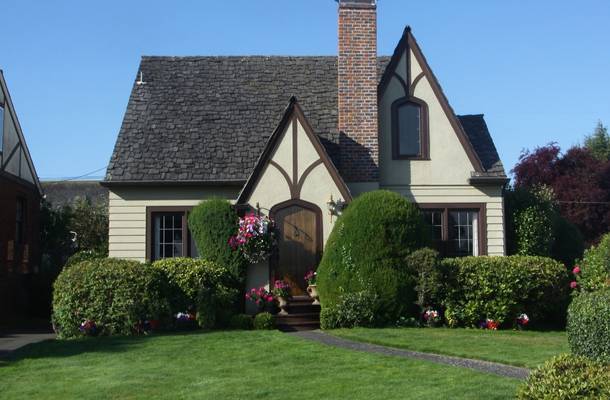
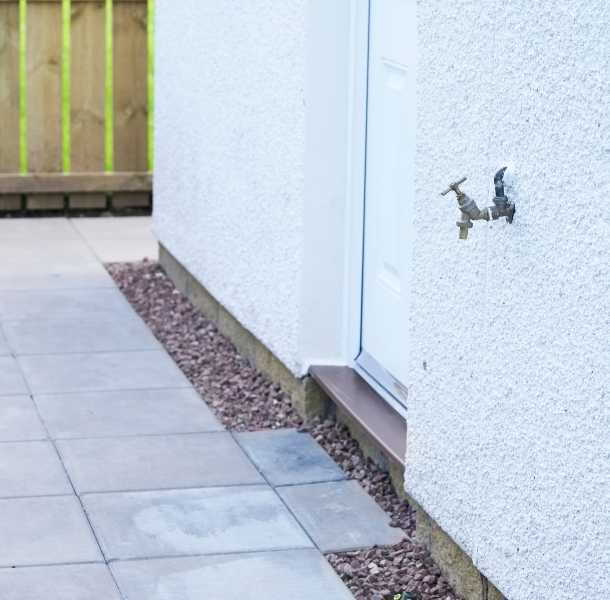
If you are contemplating external rendering at your home, you need to know what the benefits of rendering external walls are. Some of the leading reasons to render walls at your home include:
One of the most appealing factors about house rendering is the many options to consider. If you need help determining what rendering is best for your home, please contact us, and we will be more than happy to talk you through the merits of different renders.
Cement rendering is a traditional form of rendering, and if you are looking for a robust finish which adds protection, this is an option to consider.
Concerning materials, cement render is more affordable than some options, but the labour associated with this robust substance means labour costs are often a bit higher.
To enjoy the benefits, you need to apply multiple coats of cement to a house, so it is a labour intensive solution when you render walls in this manner.
With regular maintenance, such as refreshing the paintwork, cement rendering looks fantastic for many years, but in some cases, small cracks can appear. This is understandable given the robust nature of the material, but if you are concerned about dampness penetrating cracks, another form of rendering might be best for you.
However, we can apply a render coat to a wide range of households and receive considerable praise and positive feedback for this work.
While there are modern rendering solutions which provide a great range of benefits, there are also traditional solutions which offer value for money. Sand and cement rendering is a popular and familiar solution.
While many modern professionals have little or no experience in this material with solid walls, it is a solution provided by skilled and experienced rendering professionals.
Sand or cement based render only requires a single coat, which is a low-cost solution compared to more modern efforts. However, this rendering requires more maintenance, and if you want it to retain an impressive appearance, you will need to paint it at regular intervals.
However, there will be clients who favour this solution for solid walls, and we are more than happy to talk you through the merits of rendering a house in this way or with any other commercially available product. For an affordable solution that offers weather protection, sand and cement render is worth considering.
If you are worried about cement rendering cracking, you will be better off with a polymer render. This render style is commonly available in pre-mixed bags, with lime or white cement as a base.
The plastic base of this rendering reduces the likelihood of cracking, so it is a viable option for energy-efficient goals and for reducing the possibility of dampness entering your home. When applying render of this type, you enjoy a smooth finish.
Another substantial benefit of polymer render is that it is available in various colours. This means you have several options to consider, and you won’t waste time painting the render to match your colour scheme.
If you have a reliable finish on your walls, acrylic rendering is a fantastic way to finish and seal your property, enhancing its look at the same time. With acrylic render, you can choose colours and textures, allowing you to develop the style you want at your property.
Acrylic render is enhanced with fibres, which reduce the likelihood of cracking and help ensure a durable and dependable finish.
Silicone render has been a prevalent option in recent years, and if you want a finish that will last for many years, this is a fantastic option.
You should also consider silicone rendering to minimise the maintenance associated with your finish. We’ve seen that rain is highly effective at removing dirt from silicone render, ensuring your home looks brilliant, even after a heavy downpour!
You should be confident of a smooth render with this finish.
Monocouche rendering is a relatively new option in the rendering market, and as the name comes from the French for “single layer” or “bed”, you get a feeling for the simplicity of this finish.
If you want the dependable yet flexible nature of lime render that limits cracking and a maintenance-free finish that stands up to all weather conditions, Monocouche render is an option to consider.
When you take on board that this style of finish is also beautiful, it is easy to see why so many property owners are opting for this style of finish in recent times.
Lime rendering remains an excellent option for older homes as it works wonderfully with the style and functionality of older homes and period properties. Lime rendering provides a breathable finish for the property, and it is a tough render finish.
A quick overview of the benefits of traditional lime rendering include:
While traditional lime rendering comes at a higher price than cement, it is an affordable option compared to the full range available on the market. If you have an older home or period properties, the lime wash is a fantastic option that matches your needs perfectly, and this smooth finish is worth careful consideration.
A positive feature about house rendering is that it comes in any colour you can hope for. Of course, just because you can select any coloured rendering doesn’t mean you should. Homeowners should consider other properties in the local area, opting for a colour that blends in with other homes.
In the housing market, it doesn’t pay to stand out, so be careful with a pre coloured render finish at your home. When rendering a house, always have one eye on long-term issues such as property value, not just how it currently looks!
Another thing to remember is that some colours require more maintenance than others. If you choose a dazzling white colour, which admittedly looks fantastic, you should commit to repainting and cleaning the finish regularly.
There are finishes which are said to be self-cleaning, which lowers the amount of work you need to do, but you should always consider the overall impact of a colour scheme.
A 2021 study by a boiler company listed the most popular colours for the outside of a home-based on online searches. The top ten were as follows:
The leading choice was searched for an average of 24,910 times a month. By contrast, the lowest-ranked option in the top 10, yellow, was only searched for 240 times per month.
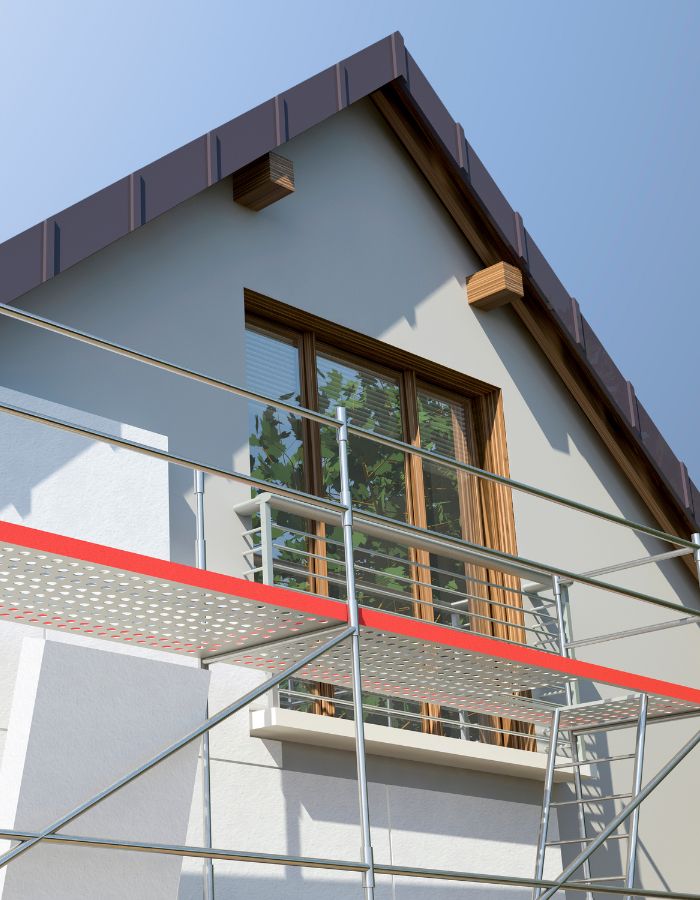
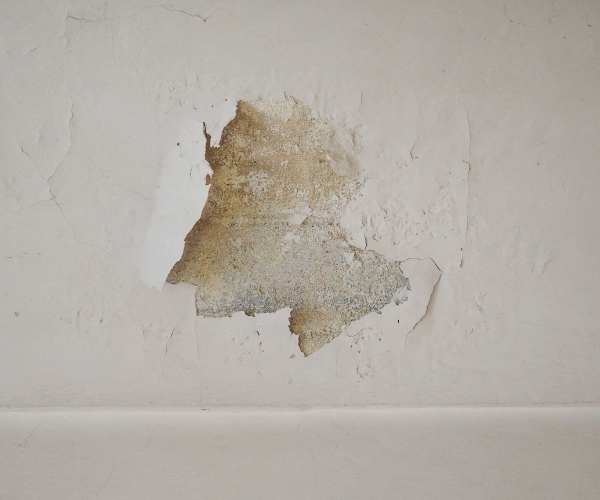
One of the most common reasons homeowners come to us for house rendering services is because they are worried about dampness. At WeDoRender, we’ve helped many clients damp-proof their homes. When rendering is used alongside other strategies, it is a highly effective way of ensuring your property doesn’t succumb to dampness.
If you are concerned about penetrating damp, with water being trapped in cracks of the property's brickwork, rendering is a sensible solution.
Of course, if your damp problem is down to missing tiles or roofing issues, such as broken gutters or fascia issues, there isn’t much that rendering can do to resolve those problems.
We are more than happy to review your problem and assess the likelihood of damp and what impact rendering will have on protecting your home. Contact us today to arrange an appointment or to discuss damp proofing solutions in greater detail.
While there is no legal barrier to rendering your home yourself, it is a task that is best left to professionals. WeDoRender has a team of trained, qualified and skilled professionals with considerable experience and expertise in rendering homes.
We work quickly, but without compromising on quality. Also, because this is what we do, we have great relationships with suppliers, ensuring we obtain materials at a fair price, helping to lower the cost of rendering.
If you attempt DIY rendering, you’ll likely pay a lot more for materials and have time to factor into the overall cost. Hiring a professional rendering company often provides far greater value for money, and we are more than happy to discuss our rendering services.

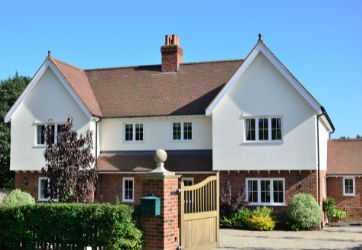
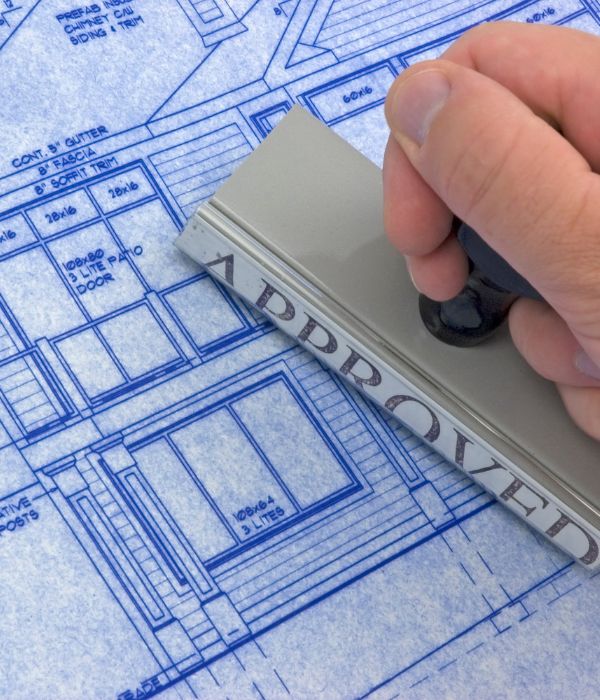
A great reason to call on us for house rendering services is we take care of administrative issues and local authority matters regarding your house rendering project.
For most of our clients, especially those living in a semi detached house or terraced home, there is no need to obtain planning permission or worry about building regulations.
This is because most exterior updates from the list below are classed as permitted development:
With these finishes, even pebble dash finishes, there is typically no requirement to obtain planning permission. You should consider how this work impacts the neighbourhood, and if you are on good terms with neighbours, you might wish to advise them of the work you arrange.
In some cases, we have carried out work for adjoining houses or even many houses in the same street after one client started the process. For extended projects like this, there is a benefit in increasing the overall property value and appearance of homes in your local area.
Of course, if your home is in a conservation area or there are restrictions on your home or space, it might be that you require permission before you render your home.
By contacting us, we will look into this matter for you. We’ve helped many homeowners deal with the local planning department, and our assistance will speed up the process without compromising the outcome.
Anyone looking to create a unique style for their home, might consider mixing cladding with rendering. This is possible, but there are some things to consider:
Even with these drawbacks, some homeowners have opted for this finish. If you would like to discuss this option, we are more than happy to help you. The right sort of render applied, with weatherproof external paint, ensures your home is comfortable and cosy for some time. We can also advise on cavity wall insulation solutions.
Given the importance of energy-efficiency levels, many homeowners want external wall insulation in place. This doesn't prevent you from adding house render, but you need to consider the overall impact, and whether rendering a house disrupts the insulation of external walls.
We are pleased to say we have helped many homeowners style and render external walls without disrupting their insulation, and we can talk you through the process.
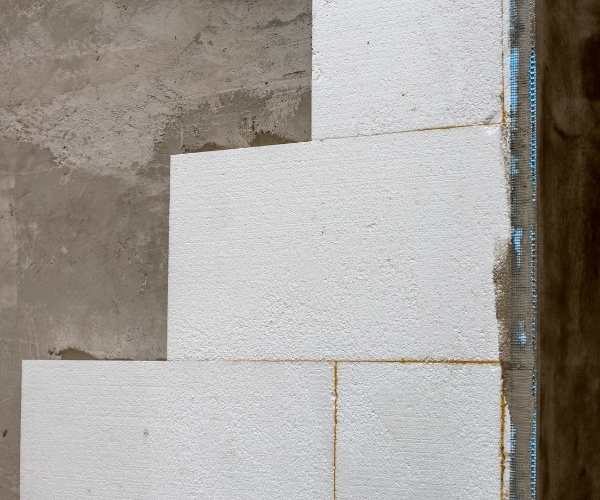
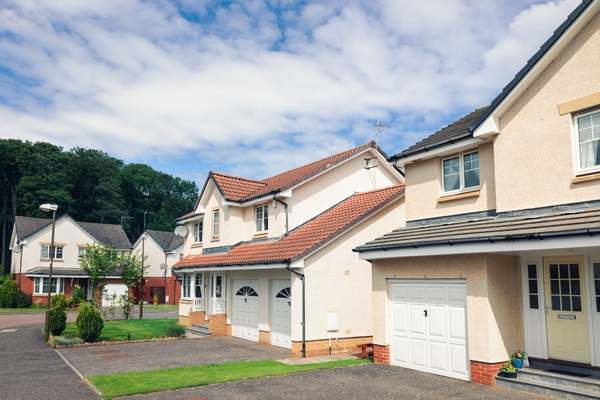
A good rendering service provides decades of confidence in your home, and at WeDoRender, we think expecting 20 to 30 years of good quality service from rendering is not out of the question.
Each project is taken on its merits, and we will advise you on what you should expect from rendering work at your property.
We know many people have taken an interest in our work, and how we apply render to their property. Again, each project is carried out on its merits, but generally, render is applied to property in several coats.
This render is then levelled out, and then the scratch coat is scored to ensure professionals can apply the next fresh coat effectively. Each application receives a thinner layer.
Yes, it is possible to use external masonry paint with render, and if you would like guidance on this, we can help. There are other top coat paints which are more suitable, especially for specific types of render.
As an example, if you have silicone renders on your external walls, it makes sense to use silicone paint. This maintains consistency, and enhances the water resistant and breathable aspects of the silicone render.

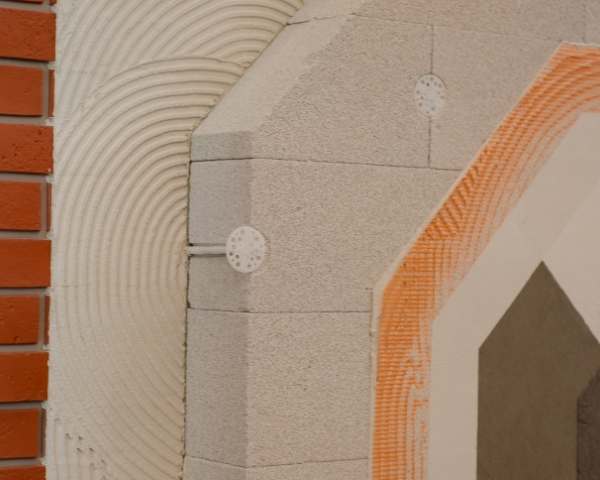
It is advisable not to render a property when it’s raining. This is because rainfall during the rendering process causes several issues, including:
When dealing with external surfaces, wind and rain will always have an impact, more so for coastal properties, but when it comes to external wall preparation, we take care of everything. From self cleaning render to the final coat or thin coat, WeDoRender ensures your home is cared for.

If you already have an existing render in place, we can advise you on what your next step is. In some cases, applying a top coat will be sufficient, ensuring your property looks great for many years. If you have a rendered extension, we advise covering your entire property to create a uniform look.
We appreciate that this carries a higher cost, thanks to the price per square metre, but we will do our best to help you find the most viable solution for your home, be it a detached house, semi-detached house or terraced property.
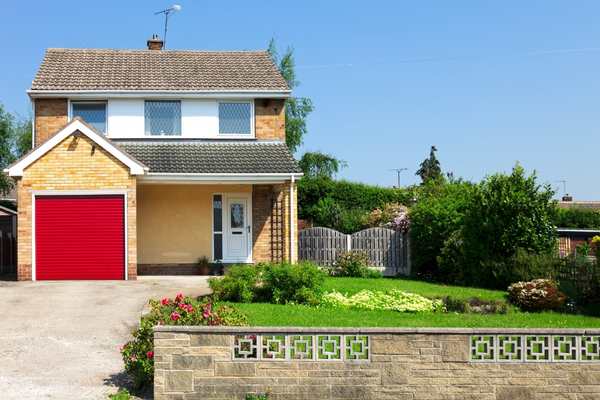

When you need external render, call on a local Rowlands Gill expert. WeDoRender offers an extensive range of rendering services in Rowlands Gill, so contact us today to see how we can assist you.
Thin coat render systems are designed to be self-colored and do not require painting. In addition to a variety of colours, different finishes are available, ranging from very smooth to textured. If you choose a rendering that will require painting, make sure to use a weatherproof exterior paint.
Exposing render to rain, whether working in it or having rain fall directly over freshly placed render, will cause issues with the colour and texture consistency of the finish. Excessive water can interfere with the binding bonding between the coatings, resulting in more significant problems.
No, it does not require painting to be waterproof. Take a look around you. Thousands of historic smooth-rendering buildings have never been painted. The only time water should be an issue is if the render fractures or becomes loose.
In dry (low humidity) climates, this happens quickly, and if the water evaporates before the cement has properly hydrated, it can result in dry, soft, and powdery render. Concrete takes time to create, and it takes about 28 days for concrete to solidify completely.
Quick drying time due to heat or wind can result in hydration cracks or a powdery surface. Drying at different times might produce variances in the surface colour of the render, resulting in a sloppy finish.